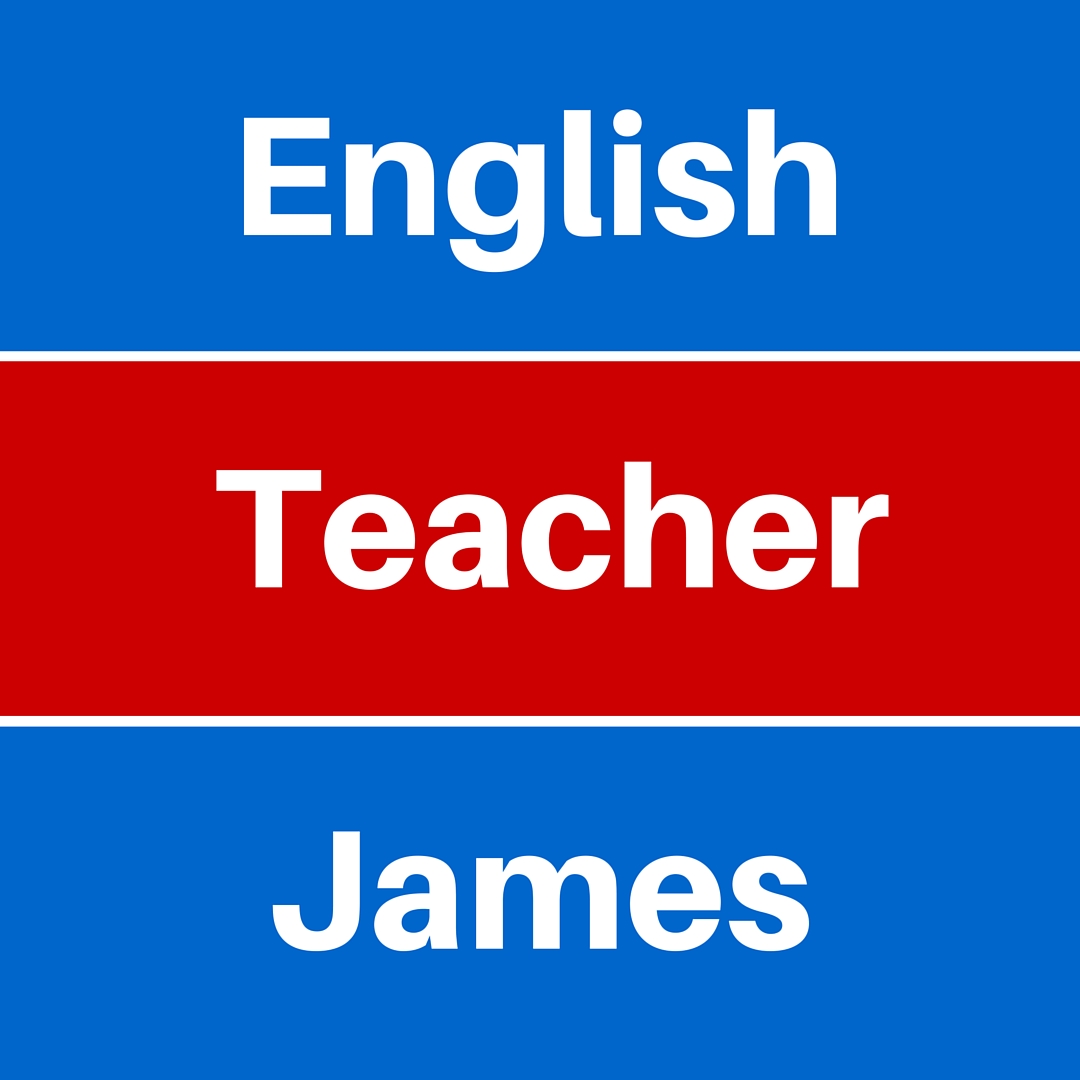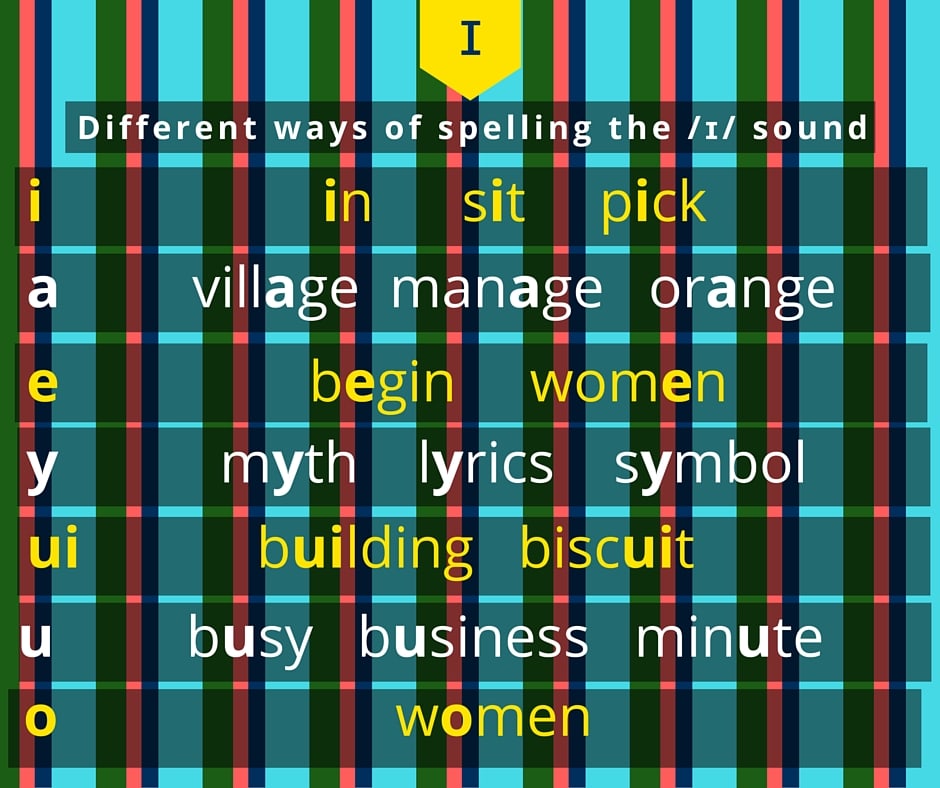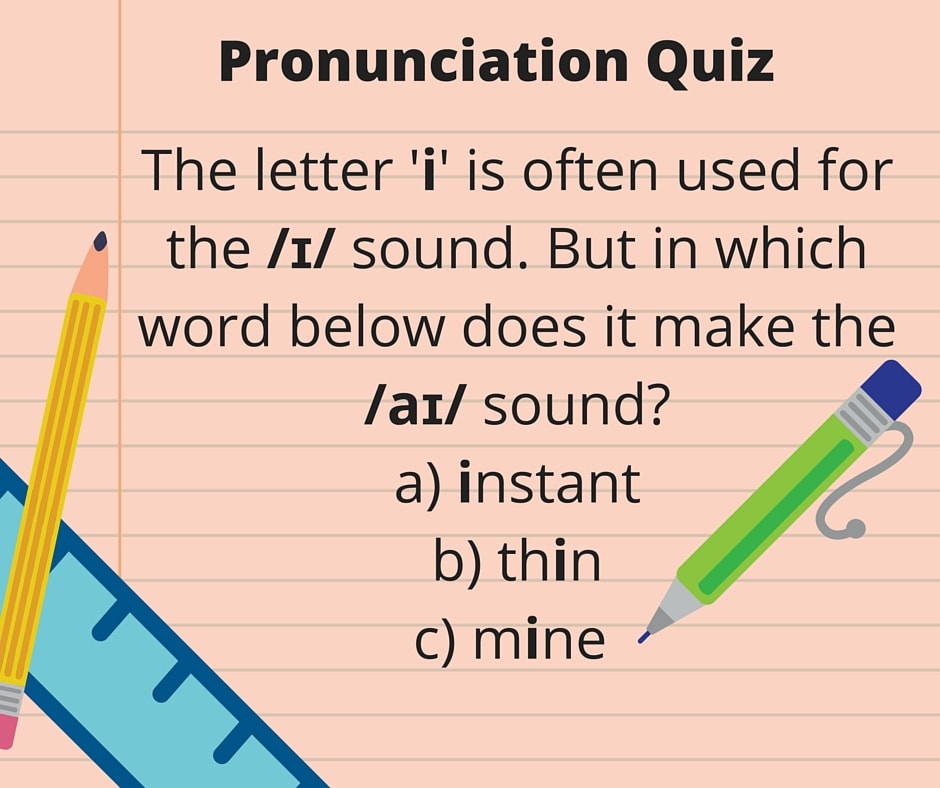HOW TO PRONOUNCE IN BUILD BUSY
HOW TO PRONOUNCE IN BUILD BUSY
Usually we have one clear way of spelling the /ɪ/ sound in the English language, and that’s with the letter ‘i’. However, there are a few sneaky words with less obvious ways of spelling that very same sound. So let’s have a look at how to pronounce in build busy.
THE –AGE OF REASON
You may not think it obvious that the letter ‘a’ should be prounounced /ɪ/ but a certain combination of letters after the ‘a’ gives us this result. Take ‘voltage’ /vɒltɪdʒ/, ‘garbage’/ga:bɪdʒ/, ‘spillage’/spɪlɪdʒ/ ‘mileage’ /maɪlɪdʒ/ baggage /bagɪdʒ/, and the pattern becomes clear. The ‘ge’ after the ‘a’ seems to work its own kind of magic turning that ‘a’ into /ɪ/.
Then we have ‘marriage’ /mærɪdʒ/, carriage /kæbɪdʒ/, whereby the letter ‘i’ disappears and the ‘ge’ transforms the ‘a’ into /ɪ/. Or is it that the ‘i’ remains the /ɪ/ it was born to be and the ‘ge’ this time erases the ‘a’? Whatever happens, both ‘age’ and ‘iage’ in these examples result in /ɪdʒ/. We can see this in words with two syllables but ‘age’ and ‘cage’ with one syllable do not follow this pattern.
PAST SIMPLE –ed
Pronunciation of the past simple deserves its own lesson, which I have taught a lot as an English pronunciation teacher, so I won’t go into too much detail here. You can pronounce ‘ed’ in past simple words in three ways: /d/, /t/ and /ɪd/ and today you only need to concern yourself with /ɪd/. Words like started, tested, dated, ended, decided and recommended all have a /t/ or /d/ sound before the ‘ed’. We pronounce the ‘ed’ /ɪd/: /sta:tɪd/ /testɪd/ /deɪtɪd/ /endɪd/ /dəsaɪdɪd/ /rekəmendɪd/. Although these words also have a ‘t’ or ‘d’ in English pronunciation we are talking about the sound rather than the spelling, even though they amount to the same thing in this instance.
OTHER EXCEPTIONS
You can treat the other kinds of spelling on the infographic as exceptions too. You have no reason to expect to pronounce ‘begin’ /bɪgɪn/ or to pronounce ‘women’ /wɪmɪn/ especially when the singular form is woman /wʊmən/. Maybe you don’t often talk about ‘biscuits’ /bɪskɪts/ but you need to know about ‘building’ /bɪldnɪŋ/, along with ‘business’ /bɪznɪs/ and minute’ /mɪnɪt/.
And don’t forget: we pronounce ‘e’ in England and English with /ɪ/! /ɪŋglənd/ and /ɪŋglɪʃ/.
In conclusion, don’t worry about spelling the /ɪ/ sound. It is fairly consistent so you can usually rely on the letter ‘i’ to do the job it was designed for. Just be aware of the exceptions and you’ll be fine, as exceptions can be memorized.
Have a look at the infographic below and learn these ways of spelling the /ɪ/ sound. This is a good way to learn English pronunciation. You can also have a go at the quiz at the bottom of this post. By now it should be fairly easy for you.
Only mine /maɪn/ has the diphthong sound. The ‘e’ after the consonant often makes this happen, as in ‘wine’/waɪn/, ‘shine’/ʃaɪn/ and ‘combine’/kəmbaɪn/. In ‘instant’/ɪnstənt/ and ‘thin’/θɪn/ we pronounce the ‘i’ with the more obvious /ɪ/ sound.


